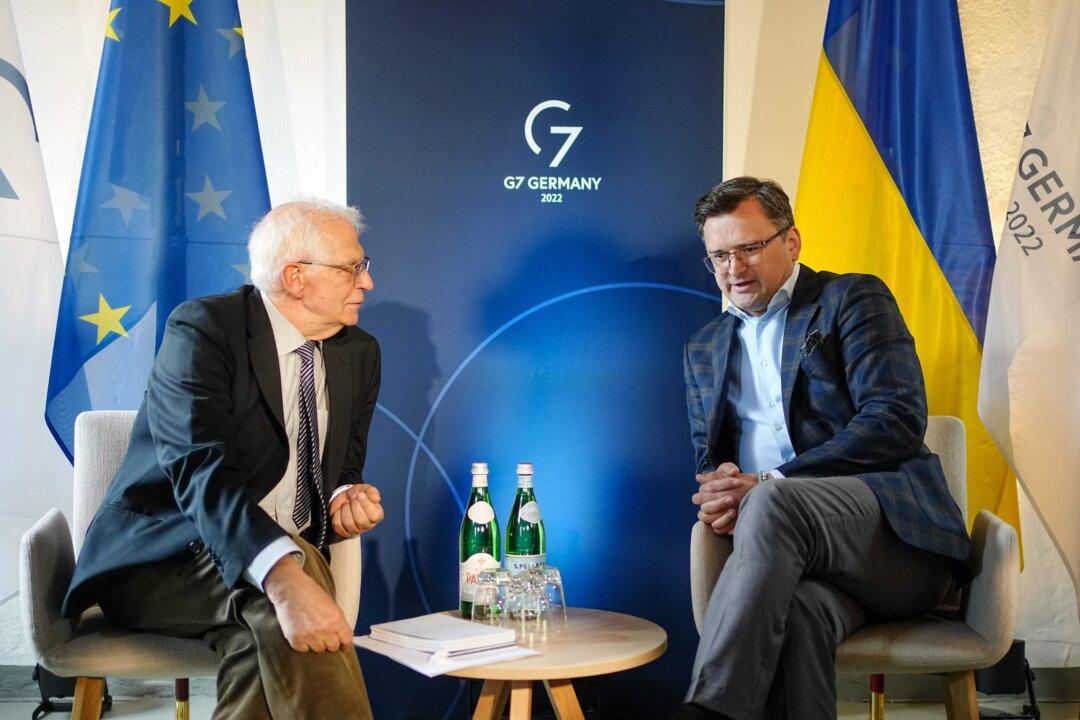The European Union is giving Ukraine another 500 million euros ($520 million) to buy heavy weapons to fend off the Russian invasion, the bloc’s foreign affairs chief said Friday at a gathering of top diplomats from the Group of Seven (G-7) wealthy nations.
Josep Borrell, the EU’s high representative for foreign policy, said he was also hopeful of getting the bloc’s member nations to agree to an oil embargo against Russia soon, despite misgivings from some countries.





